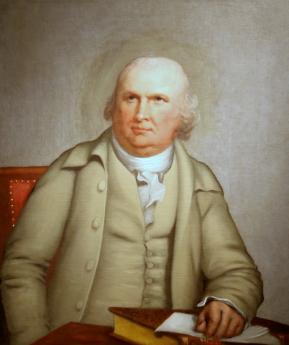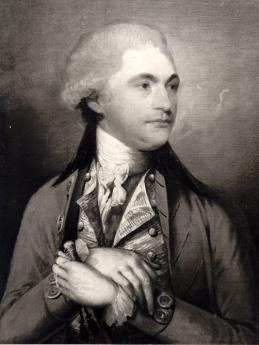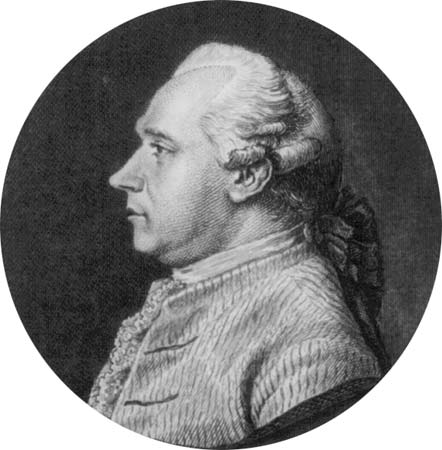Related Topics
Robert Morris: Think Big
Robert Morris wasn't born rich, or especially poor, but he was probably illegitimate. He had no recollection of his mother; his father, a tobacco trader in England, emigrated to Maryland and died rather young. It didn't take long for young Robert to become one of the richest men in America.
The Network

|
| Robert Morris |
It's true that Robert Morris had been engaged in smuggling gunpowder past the British blockade for more than six months before the 4th of July, 1776. It's also true he had found ways to make international payments in spite of a prohibition of paper money, which served well in a wartime freeze of money transfers. Still, his establishment of an effective way to wage maritime war in only two or three months is an achievement that is nearly miraculous.
Essentially, he shipped normal commercial cargo out, bought munitions with the revenue, and sailed the ship home loaded with gunpowder and guns; his firm made a profit on the outgoing shipment, and the government paid for the return trip with munitions. Because of the pre-war blockade, the commercial trade was badly needed, and extremely profitable. He wrote to one agent that one shipment which was successful would pay for 2,3, or 4 losses. That's a pretty cold-blooded way to describe 2,3 or 4 ships lost with all hands, but sometimes the sailors were only captured and imprisoned.

|
| William Bingham |
The system needed to find a way to make the exchange between guns and butter safer and more devious, so the ships leaving American ports would mainly sail to the Caribbean, to New Orleans, or to France. Sometimes transfers were made in North Carolina. At first, almost any cargo was highly profitable, but in time the main cargo was tobacco, highly desirable in Europe. New England had very little trade, so its ships were directed to Southern ports, and then took up the trade to some other transfer destination. New Orleans was in the hands of the Spanish, so negotiations were tricky. Caribbean areas had numerous ports, but plenty of pirates and/or privateers, as well. William Bingham was dispatched by Willing and Morris to Martinique and proved to be a master of the business. He added privateering to the list of his activities, paying to have ships built and then going shares with an enlisted crew. Their technique was to approach a British ship and take it as a prize. If on approaching the ship they could tell it was a British naval vessel, they ran up a French flag and headed for port. Bingham often was able to persuade the crew of a captured vessel to join him, and so the number of his ships and the number of British captures multiplied rapidly. By the end of the war, he was able to return to Philadelphia at the age of 28, temporarily the richest man in America.
Another source of privateers was the Pine Barrens of southern New Jersey, where the Willing and Morris firm itself was able to oversee the construction of vessels, the recruitment of crew, and the sharing of spoils on return to home port. The winding creeks behind Barnegat Bay were places the British soon learned to fear. One cannon on a river bend could suddenly stop any invaders. Enormous amounts of British shipping and British seamen were lost to American privateering, probably inflicting more British casualties than Washington's army.

|
| Silas Deane |
The ultimate main source of munitions was France. To the end, the French regarded the Revolutionary War as one fought between the French and the British, with Indian and colonial allies. Morris sent Silas Deane of Connecticut over to France to see if he could make connections, but he immediately found the French were ahead of him. The French King was immediately willing to advance 200,000 livres in loans, and Vergennes the foreign minister was prepared to clear up any difficulties that might arise with local police, customs and other French officials who were uninformed about the realities. And above all, Beaumarchais was in charge of local arrangements, to be sure gunpowder and guns were available in the right amount at the right places, and that local outlet was located to dispose of tobacco and other products coming in to pay for the munitions. Beaumarchais seemed to believe he had thought up this whole arrangement, and perhaps to some degree, he had. In any event, there was no problem persuading France to get involved. After a while, the enterprise was so successful the French began to fear it would bankrupt them, but that is another story. As is the notion that in 1783 the French were preparing to make a separate peace with the British, and thus to leave the colonists hanging. So to speak.
REFERENCES
| The Pine Barrens: John McPhee: ISBN-13: 978-0374514426 | Amazon |
Originally published: Thursday, March 31, 2011; most-recently modified: Friday, June 07, 2019